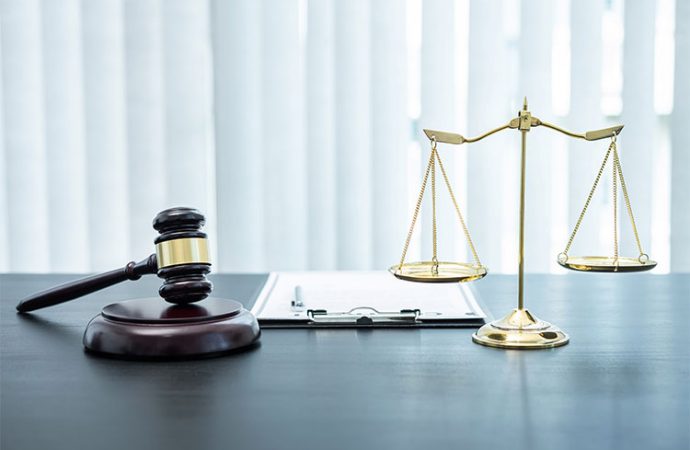Author Recent Posts Shizra Batool Latest posts by Shizra Batool (see all) War Crimes Committed by Israel in Palestine: Duality of West and International Humanitarian Law (IHL) – November 8, 2023 Parliament vs. Judiciary: lack of institutional independence – October 16, 2023 RISING COST OF FUEL AND ENERGY – A THREAT TO HUMAN SECURITY –
A new constitutional crisis has emerged in Pakistan, a country already engulfed in another political crisis for months that shows no signs of abating. The government introduced a bill in the National Assembly, the lower house of parliament to curtail the Supreme Court’s powers. The legislation, called the Supreme Court (Practice and Procedure) Act, 2023. The act is a significant advance in the constitutional and legal structure of the country’s highest court, aiming at controlling the powers of the CJP, who is the head of the judiciary in the country. In essence, it sought to curtail the CJP’s almost unfettered administrative powers, which include the ability to form benches as well as fix and transfer cases. Furthermore, the committee would decide whether or not to take up a case on its own initiative, which was previously at the sole discretion of the CJP.
In general, these three organs do not interfere in the business of other organs, and the extent of this non-interference is a measure of the maturity of a country’s democratic system. In Pakistan however, inter-institutional interference is such a serious issue. The ongoing tension between Pakistan’s parliament and judiciary intensified after the Senate passed legislation granting the power to appeal in cases launched by judges on their own through suo moto procedures. The government has proposed legislation to limit the country’s chief justice’s power by depriving him of the authority to initiate suo moto proceedings on his own and requiring “non-interference” in ECP-related affairs. Because the house considers that the judiciary’s needless intervention in political concerns is the root cause of political instability.
Tensions between the government and the Supreme Court have been rising since the Supreme Court took up a case of election postponement in Punjab and Khyber Pakhtunkhwa after their provincial assemblies were dissolved by ex-PM Khan and his allies in January. The government claimed however, that the Supreme Court had exceeded its constitutional authority by making judgments that undermined the notions of parliamentary sovereignty and separation of powers. The draught bill introduced in parliament seeks to change regulations governing the conduct of the Supreme Court and proposes the formation of a three-member panel led by the Chief Justice to hear suo motu matters.
The Supreme Court’s moral credibility is being questioned as a result of the bill debate, with some claiming that its decision to delay the bill goes beyond its constitutional duty and encroaches on the realm of parliament. The struggle for jurisdiction between the legislature and the judiciary is not new in Pakistan, and the current dispute emphasizes the fragile balance of power between the two institutions. In terms of the validity of parliamentary resolutions, Article 66 of the Constitution enshrines long-standing parliamentary privileges, particularly parliamentarian’s freedom of speech. This means that legislators can freely express themselves during debates and discussions without fear of being held accountable in court for what they say or how they vote in the legislature. However, Article 68 of the Constitution prohibits debate in parliament on the conduct of any Supreme Court or High Court judge in the performance of their duties. This means that members of parliament cannot debate the conduct of judges while they are carrying out their official duties, which is something that members of parliament appear to have ignored recently.
Article 184(3), which allows the Supreme Court suo motu powers, is an effective tool for reviewing the constitutionality of laws and decisions made by public authorities. The real problem emerges when courts are overly ready to overturn legislative or executive actions. Furthermore, the superior judiciary has been observed in some circumstances to go beyond the bounds of the petitions before it, allowing its personal views to affect decisions on concerns of public policy. The Supreme Court (Practice and Procedure) Bill, 2023, appears to have become a key cause of conflict between parliament and Pakistan’s Chief Justice. While the real battle appears to be political in nature, it is unfortunate that it is being played out in judicial chambers. The relationship between the state’s two most powerful organs, the legislature and the judiciary, must be mended and enhanced. The realization that each organ should strictly adhere to the job specified in the constitution is the starting step. The Parliament and the judiciary must collaborate to settle these challenges without stepping on each other’s toes and causing more damage to the credibility, moral authority, and sanctity of both pillars of the state.
- War Crimes Committed by Israel in Palestine: Duality of West and International Humanitarian Law (IHL) - November 8, 2023
- Parliament vs. Judiciary: lack of institutional independence - October 16, 2023
- RISING COST OF FUEL AND ENERGY – A THREAT TO HUMAN SECURITY - September 15, 2023





















Leave a Comment
Your email address will not be published. Required fields are marked with *